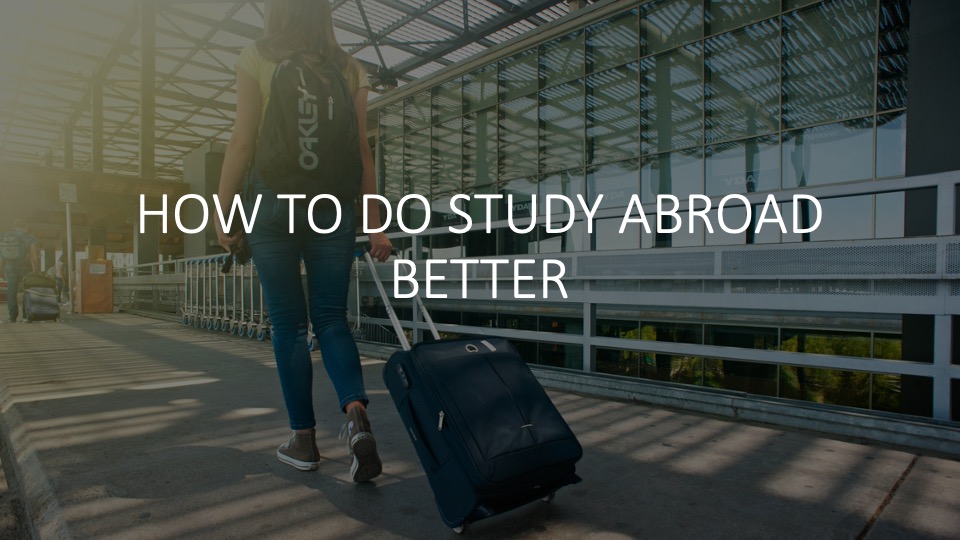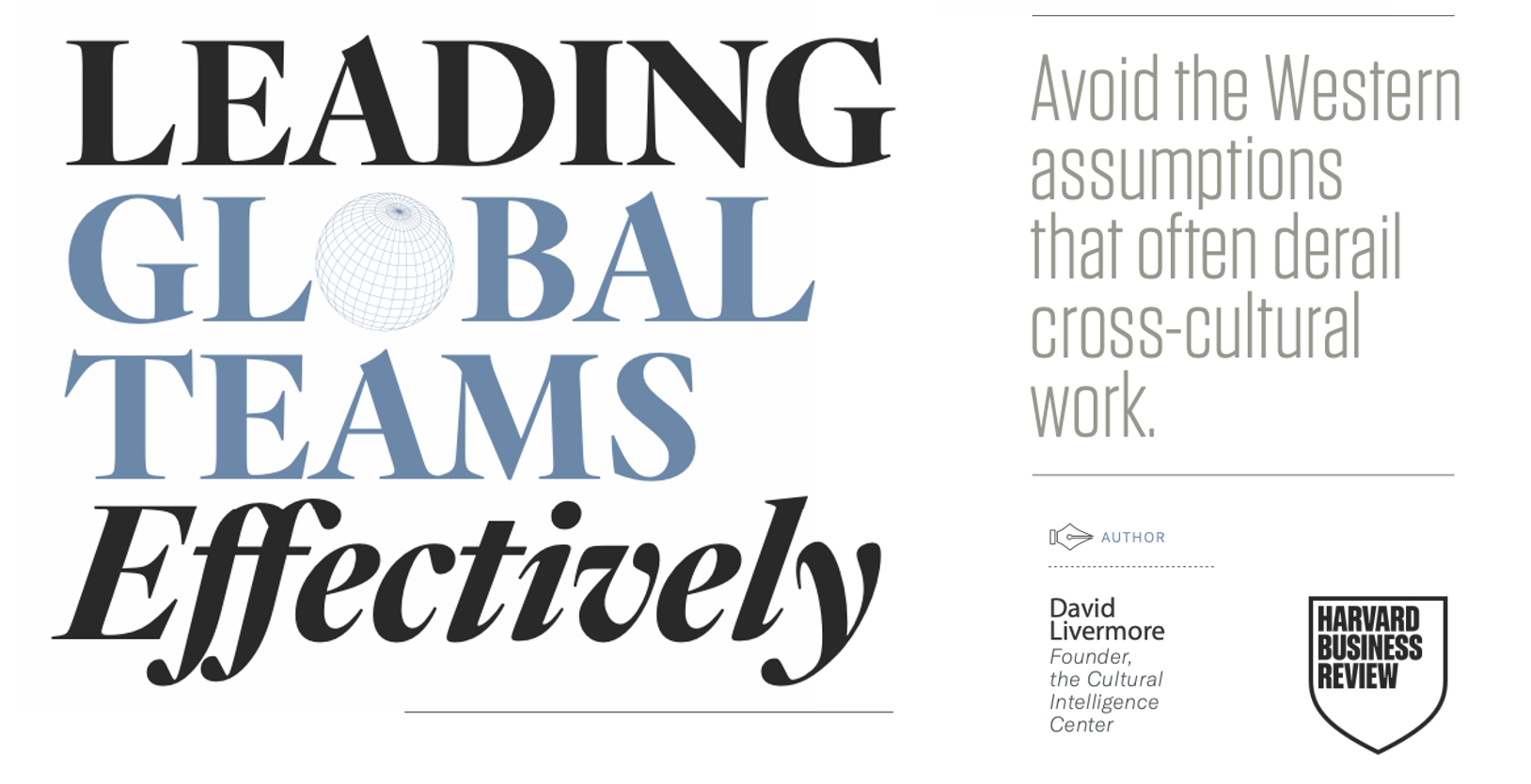
The most popular way many educational institutions develop cultural intelligence (CQ) and global mindsets is through study abroad initiatives. These can be formative experiences, particularly for students who have never been in a place where they aren’t part of the majority culture. The challenge is that many study abroad experiences do very little to improve CQ and instead, essentially become a trip overseas where students cloister with peers from similar backgrounds and spend little time directly interacting with individuals from the places they visit. If not done well, study abroad experiences can actually perpetuate stereotypes and erode cultural intelligence. And quite honestly, most employers show little interest in whether a job applicant spent time studying abroad. Is it time to eliminate study abroad programs or do they still have potential?
What the Research Says
A number of studies have examined the efficacy of study abroad and while there are a number of shortcomings in many programs, there are ways study abroad can play an important role in developing students’ cultural intelligence. Programs that include homestays, hands-on work experience with local companies, and real life cultural dilemmas are proven to be more effective as are experiences that require solving complex business problems with a diverse team. Interestingly, there is no significant difference in student improvements in cultural intelligence between study abroad programs conducted overseas versus those in domestic locations. Creating authentic intercultural experiences (whether at home or abroad) is more critical to the development of cultural intelligence than whether the program is in a different country (See Ang et. al., 2020). A US student may develop cultural intelligence more from working in a company for two weeks in Baton Rouge than from a semester studying with other American students in Madrid. Wherever the program, a conscious effort to transfer learning from the experience to life back home is a critical factor in determining lasting success.
Positive Case Studies
Many universities have applied the research on study abroad programs and cultural intelligence to design more effective experiences for their students. The Queensland University of Technology uses CQ assessments, situational judgment tests, and reflective writing assignments before, during, and after students’ study abroad experiences to ensure the experience translates into learning. Harvard Business School used the CQ Assessment in the FIELD immersion program alongside a series of reflective activities, case analyses, and team evaluations to expand the evaluation of students’ demonstrated competence in addressing the challenges of doing business in a global environment. The Ross School of Business at University of Michigan uses the CQ assessment before and after students study abroad. They use the feedback from the pre-trip assessment as a way to help students use the overseas experiences as a way to improve their weakest CQ areas. When they take the assessment again upon their return, they use the results to evaluate how the experience affected their CQ scores and proactively consider how to use what they learned to apply CQ in their career pursuits following graduation.
How to do Study Abroad Better:
Here are a few ways that we’re drawing upon this body of research at Boston University to ensure our study abroad programs have a lasting benefit for our students:
1. Select faculty and design the program with CQ in mind
For programs led by faculty or third party providers, the cultural intelligence of the leaders makes or breaks whether the program builds students’ CQ. Faculty and trip facilitators are usually the ones helping students make sense of what they observe so it’s critical they do so in a way that promotes suspending judgment and more accurately interpreting what they observe.
In addition, the activities and schedule play a large part in whether students visit places as tourists or actually immerse themselves in the context. For students traveling on their own, build in accountability for developing relationships with students from the home country. Even students highly motivated to break outside their comfort zone will be tempted to default to hanging out with people from back home.
2. Assess CQ pre-trip
Measure students’ cultural intelligence before they travel. Help them identify the areas where they may struggle most (e.g., a student who scores low in the self-efficacy dimension of CQ Drive may need help building confidence). Work with them to develop goals that use the travel experience to improve their CQ. When done well, these experiences are still one of the best ways to build cultural intelligence.
3. Rethink pre-trip orientation
Focus the pre-departure orientation on key points to understand about the destination, including the dominant cultural values (e.g., low vs. high context, formal vs. informal hierarchy), the historical relationship between the destination with students’ home countries, and key current events. The primary purpose of orientation should be less focused on getting students to master all the information about the destination and more to provoke their curiosity about things they want to learn while they’re there.
4. Create space for reflection during the trip
Ensure students reflect while they’re immersed in the unfamiliar context. This might include providing prompts for them to journal about or to discuss with peers (e.g., “What’s something you saw today that you would never see at home?”). Encourage honest insights while pushing them to suspend judgment. Experience by itself does not create transformation. It has to be combined with guided reflection.
5. Make the de-brief more than a picture party
Put as much more emphasis on debriefing the experience when students return as you do on providing orientation before they go. Some students experience more culture shock when they come home than when they went abroad. Assign a reflection paper that not only provides the space for them to reflect on their travels but guides them in transferring what they learned to life back on campus and to their future career. Have them complete the CQ Assessment again and compare their results from before they traveled.
Study abroad has enormous potential to be something that transforms students for the rest of their lives. It’s one of the reasons we’re making it a priority for our Questrom students. But we need to be sure we make the most of these experiences so that they not only improve the CQ of those traveling but leave the places they visit better off.
These are the kinds of practical issues our CQ Fellows address—applying the rigorous research on cultural intelligence into relevant solutions. Next month, applications open for the 2025 cohort of CQ Fellows and we’d love to consider you joining this community of thought leaders.



